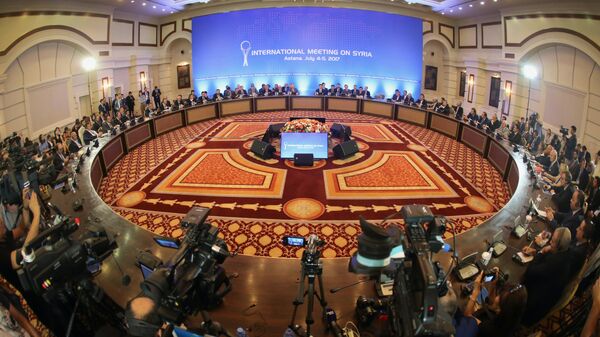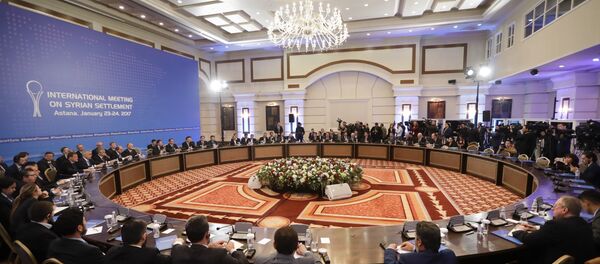If Washington and Amman are really interested in preserving the territorial integrity and the national unity of Syria, they should join subsequent rounds of negotiations and contribute to the set-up of the fourth de-escalation zone in Syria, he added.
"The problem with Jordan is that it is incapable of pursuing any independent policy towards Syria. It has become only too clear and the pressure on Amman from the US and other Western states has recently intensified. For example, Germany is transferring its units from Turkey's Incirlik air base to Jordan. In such conditions, we can't expect any independent foreign policy from this country," Oktay Aksoy said.
On the other hand, he elaborated, the Middle Eastern plans of the US are not transparent. Their operations in the region seem to be unstable and inconsistent. In his foreign affairs, Trump is behaving as if he is not ruling a state but rather some commercial enterprise. Therefore at times, it is very hard to forecast, in which direction the US will line up its foreign policy.
Probable the recent meeting between Presidents Putin and Trump will force the US leader to reconsider his Middle Eastern policy. This will benefit not only the participants of the Astana talks but the region as a whole, the former diplomat said.
"If the US is interested in preserving the territorial integrity and national unity of Syria not in word but in fact, it should join further rounds of the talks in the full-fledged format and together with Jordan contribute to the setup of the fourth de-escalation zone in the south of Syria," he said.
Oktay Aksoy added that it is also in the interests of Amman. He hopes that Jordanians will find the will to abandon their current Syrian policy, which has been imposed from abroad, and will also join the Astana process, he finally concluded.




